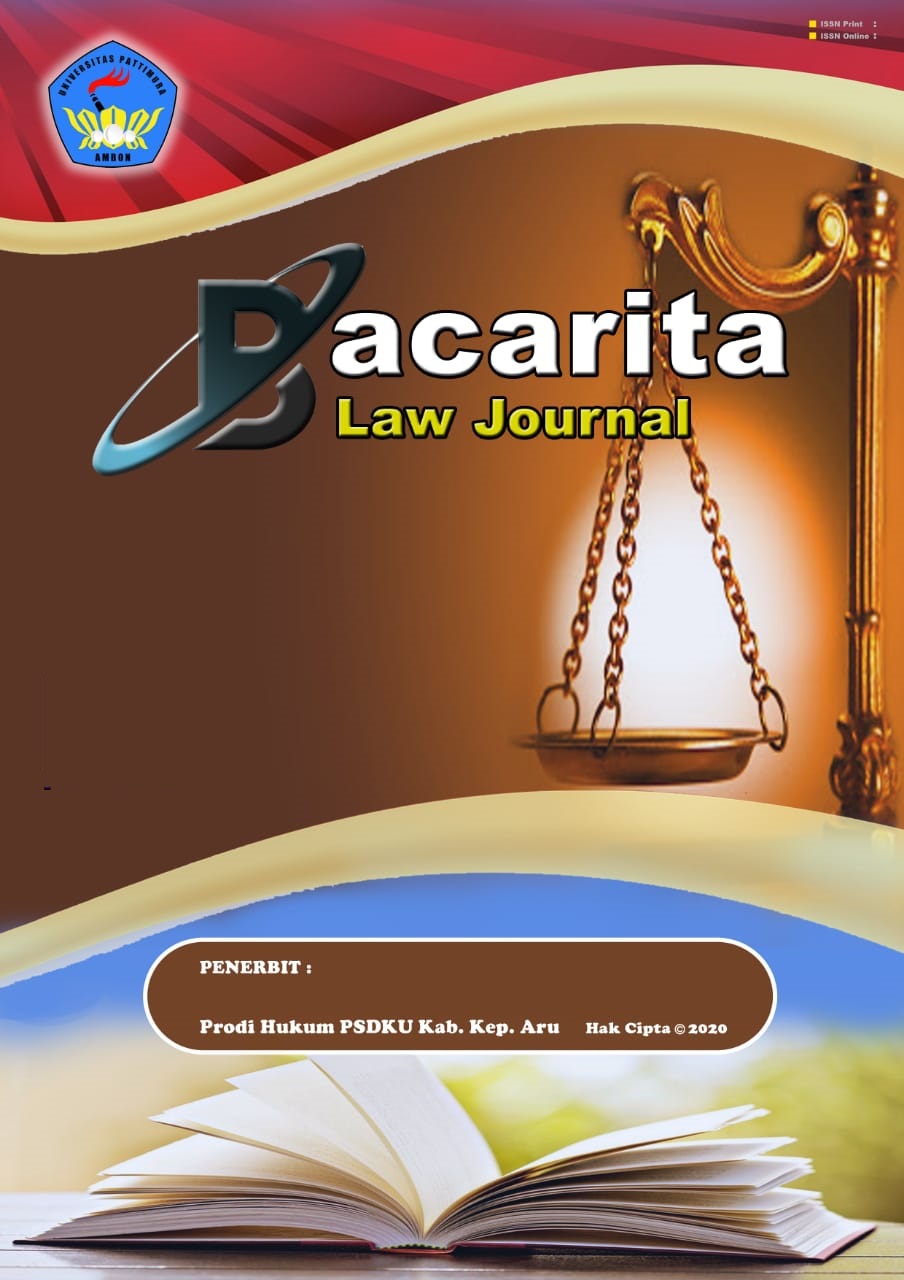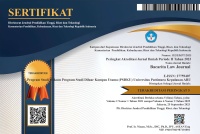Akibat Hukum Penerapan Prinsip Good Faith Pada Kontrak Investasi Internasional Di Indonesia
Abstract
International Trade has become a topic of discussion due to its economic relevance in today’s rapid development. Internatinal trade contracts cover trade in services, including contracts related to investment, finance, construction, transportation, and even contracts made in electronic form. This study aims to identify and analyse the legal consequences of applying the principle of good fath, which only exist at the time of contract execution in International Investment Contracts in Indoensia, and to identify and analyse alternative solutions in the event of a dispute. This research is a normative juridical study using secondary data. The secondary data used includes primary legal materials, secondary legal materials, and tertiary legal materials. Data collection technique involve library research. The data analysis techniques used in this study is qualitative data analysis using a historical approach. Application of the principle of good faith The principle of good faith, which is only implemented at the time of te contract, risks disputes arising at the negotiation stage of each contract, the risk of disputes in each contract will be narrower. This is because the principle of good faith is inerent in human nature, even though the legal systems of different countries regulate this principle differently. If a problem arises in an international investment contract, according to Indonesian law, specially in the Act No. 25 Of 2007 concerning investment, it will be resolved through international arbitration. However, it is possible to use other arbitration institution agreed by both parties. If there is problem and the parties have not determined their choice of law and have not included in their agreement, they may use the above arbitration institutions as agreed between the two parties. Therefore, for foreign investors who enter into investment contract in Indonesia, if there is a dispute in the investment contract, it will be resolved through international arbitration. This is especially true in international trade contracts in international investment contracts in Indonesia.
Downloads
References
Adolf Huala, Hukum Ekonomi Internasional, Jakarta: Raja Grafindo, 2005.
Amiruddin dan Zainal Asikin, Pengantar Metode Penelitian Hukum, Jakarta: Rajawali Press, 2006.
Cindawati, Prinsip Good Faith (Itikad Baik) dalam Hukum Kontrak Bisnis Internasional, Mimbar Hukum 26 no. 2 (2014)
Emmy Latifah, Bahan Kuliah Hukum Kontrak Dagang Internasional, Universitas Sebelas Maret, Program Pascasarjana Magister Kenotariatan. 2015.
https://www.academia.edu/10279023/Hukum_Kontrak_Internasional_Huala_Adolf.
https://id.wikipedia.org/wiki/Penanaman_Modal_Asing.
http://bem-umk13.blogspot.co.id/2012/07/makalah-penanaman-modal-asing-di.html.
http://akbarkurnia.blogspot.co.id/2011/12/penyelesaian-sengketa-penanaman-modal.html.
http://komunitaspayung.org/merangkai-penanaman-modal-asing/.
Ida Bagus Rahmadi Supancana, Perkembangan Hukum Kontrak Dagang Internasional, Jakarta: Badan Pembinahan Hukum Nasional, 2012.
Pasolong, Harbani, Teori Administrasi Publik. Yogyakarta: Alfabet, 2012.
Peter Mahmud Marzuki. 2006. Penelitian Hukum. Jakarta: Kencana.
Ridwan, Khairandy, http://ridwankhairandy.staff.uii.ac.id/2010/01/20/makna-tolok-ukur-pemahaman-dan-sikap-pengadilan-di-indonesia-terhadap-iktikad-baik-dalam-pelaksanaan-kontrak.
Saul Latvinoff, “Good Faith”, Tulane Law Review, 71 no. 6, (2000): 1646 – 1648.
Shofin Nuzil Ahmad, 2011, http://berbagitentanghukum.blogspot.co.id/2011/12/arbitrase-sebagai-penyelesaian-sengketa.html
Copyright (c) 2023 Risqi Mumpuni Dyastuti

This work is licensed under a Creative Commons Attribution-NonCommercial 4.0 International License.
Authors who publish their manuscripts in this Journal agree to the following conditions:
- The copyright in each article belongs to the author, as well as the right to patent.
- Authors are able to enter into separate, additional contractual arrangements for the non-exclusive distribution of the journal's published version of the work (e.g., post it to an institutional repository or publish it in a book), with an acknowledgment of its initial publication in this journal.
- Authors are permitted and encouraged to post their work online (e.g., in institutional repositories or on their website) prior to and during the submission process, as it can lead to productive exchanges, as well as earlier and greater citation of published work.
- Authors have the right to self-archiving of the article (Author Self-Archiving Policy)















